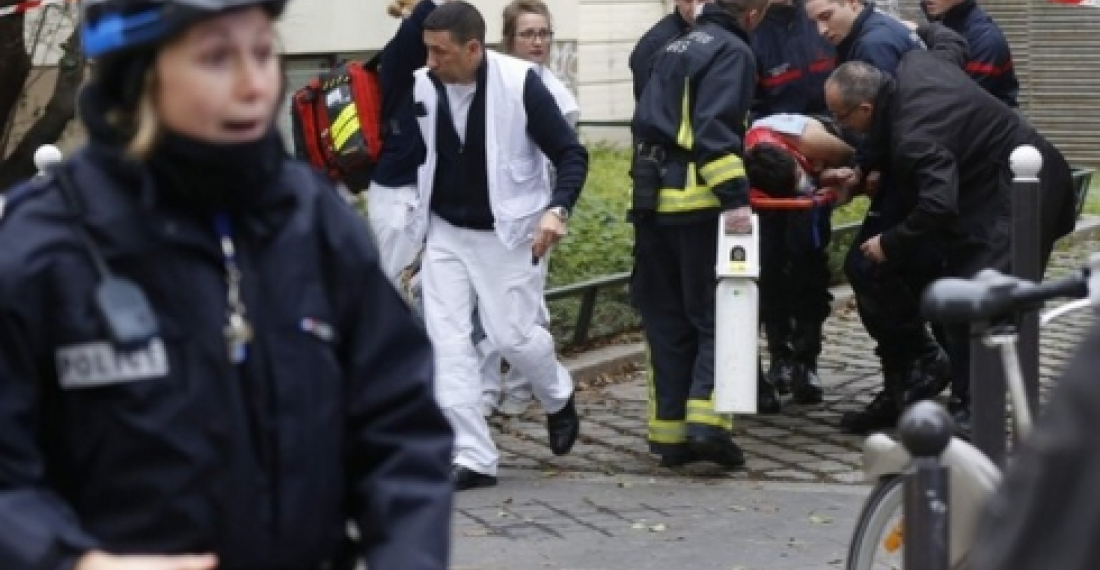Gunmen have shot dead 12 people at the Paris office of French satirical magazine Charlie Hebdo in an apparent militant Islamist attack.
Four of the magazine's well-known cartoonists, including its editor, were among those killed, as well as two police officers.
A major police operation is under way to find three gunmen who fled by car.
President Francois Hollande said there was no doubt it had been a terrorist attack "of exceptional barbarity".
The masked attackers opened fire with assault rifles in the office and exchanged shots with police in the street outside before escaping by car. They later abandoned the car in Rue de Meaux, northern Paris.
There has been a swift condemnation all over the world for the atrocity committed in Paris. Condemnations came not only from leaders of countries but also from a wide range of civil society organisations who have expressed their profound distress at the events. Many Muslims have also joined in their condemnation of the outrage. World famous Islamic scholar, and professor at Oxford University, Tariq Ramadan tweeted:
'Contrary to what was apparently said by the killers in the bombing of Charlie Hebdo's headquarters, it is not the prophet who was avenged, it is our religion, our values and our Islamic principles that have been betrayed and tainted. My condemnnation is absolute and my anger is profound (healthy and a thousand times justified) against this horror!!!'
source: commonspace.eu
photo: Rescue workers taking out some of those injured in the attack on the French satirical magazine Charlie Hebdo on the morning of 7 January 2015.







